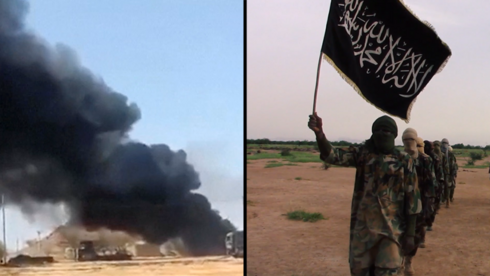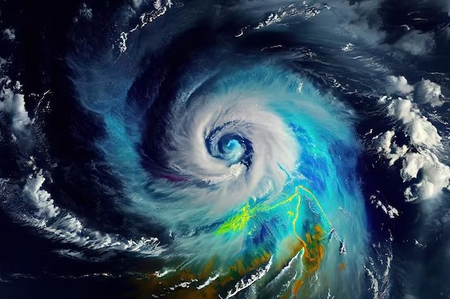Copyright ynetnews

Across Africa and beyond, concern is mounting that Mali—under military rule since 2020—may be on the verge of collapse after its junta failed to repel jihadist insurgents who have battled the government for years. The militants, affiliated with al-Qaida, now control parts of the country where they enforce an extreme interpretation of sharia, Islamic law. For the past two months, they have been effectively strangling the capital, Bamako, by attacking fuel convoys, leaving the city of 4 million residents under a tightening siege. Although analysts say the jihadists do not intend—or have the capacity—to directly storm the capital to topple the military government and establish an Islamist regime similar to the one ISIS set up in Syria and Iraq in 2014, there are fears the junta could collapse under severe fuel shortages. Another internal coup is possible, which could further weaken central authority and allow the insurgents to expand their power across Mali and the wider Sahel region—a vast belt of land stretching south of the Sahara Desert. The siege on Bamako’s fuel convoys is being enforced by the jihadist group Jama’at Nusrat al-Islam wal-Muslimin (JNIM), or “Group for the Support of Islam and Muslims.” Formed in 2017 as a coalition of jihadist factions that grew out of a 2012 Tuareg uprising in northern Mali, JNIM now operates across Mali and its neighbors Burkina Faso and Niger. All three countries have undergone military coups in the past five years amid their fight against jihadist movements. The juntas that seized power expelled French troops—forces of their former colonial ruler—who had been assisting the ousted elected governments in combating terrorism. In response, Mali, Niger and Burkina Faso formed their own military alliance and deepened ties with Russia, which sent mercenaries to replace the French contingent. Those forces first operated under Yevgeny Prigozhin’s Wagner Group and, after its dissolution following Prigozhin’s 2023 mutiny, under a Kremlin-controlled successor known as the “Africa Corps.” Mali’s current leader, Col. Assimi Goïta, took power in a 2021 coup. The jihadists now hope another internal military revolt might depose him. But the reliance on Russian mercenaries has largely failed: JNIM has only grown stronger. In July alone, the group carried out 54 attacks in Burkina Faso, 36 in Mali and seven in Niger. Last year, it claimed to have killed 50 Russian mercenaries in Mali in what it described as a “complex ambush.” The group has also struck in nearby countries such as Nigeria—where, just last week, U.S. President Donald Trump threatened military intervention over “the killing of Christians.” According to reports, atrocities and executions of civilians by Russian mercenaries suspected of aiding jihadists have deepened local resentment toward the military regimes and driven impoverished young men to join JNIM. In Mali, where coups in 2020 and 2021 both promised to fight jihadism, the situation has deteriorated sharply. The rebels have expanded their control into southern and western areas and enforce strict Islamic codes, including requiring women to wear hijabs. Their advance now allows them to target the fuel convoys on which landlocked Mali depends, bringing in supplies from coastal countries such as Senegal and Ivory Coast. JNIM has claimed responsibility for numerous deadly ambushes and, according to reports, funds itself through extortion, taxation in areas under its control, and the kidnapping of foreign nationals. Just last week, the group reportedly received $50 million in ransom for two hostages from the United Arab Emirates. The group announced the “siege” of Bamako in early September after the junta restricted fuel shipments to remote areas, hoping to pressure militants in their hideouts. The blockade is now entering its third month. In mid-September, a 100-truck convoy was ambushed and half the vehicles were set ablaze. The Counter Extremism Project reported that the militants have seized large quantities of weapons in recent attacks using drones. Mali, a nation of 25 million people, is one of Africa’s largest gold exporters yet ranks among the six least-developed countries in the world. Roughly half its population lives in poverty. The fuel crisis has deepened citizens’ hardships—many areas now have only a few hours of electricity per day, and some neighborhoods are entirely without power. Schools have closed, and long lines stretch outside gas stations. Western nations including the United States, Italy, Australia, Germany and Japan have issued travel warnings urging their citizens to leave Mali immediately. The U.S. State Department on Tuesday called on Americans to depart “immediately via commercial flights,” warning that “the security situation in Bamako has become unpredictable.” A former Malian minister now in exile told The Guardian: “I don’t want to sound too dramatic, but the country is collapsing before our eyes.” He predicted another coup—Mali’s third since 2020—could come within days. It remains unclear whether the jihadists intend to exploit the crisis to directly attack Bamako. Diplomats and military analysts told Reuters they doubt JNIM has the capability for such an operation. Instead, their likely goal is to destabilize the regime enough to trigger Goïta’s ouster, further eroding central authority and allowing them to gain greater control, funding and arms. In the longer term, experts believe the group hopes to negotiate directly with the government—an outcome that would grant it political legitimacy. “The fuel siege is more than economic warfare—it is a tactic of terror,” said Justyna Gudzowska, director at the research group The Sentry. “It instills fear in the ruling junta and the public, creating the perception that Bamako is under real siege and that JNIM is at the gates.” Some within JNIM reportedly want the return of influential imam Mahmoud Dicko, who has called for establishing an Islamic state under sharia rule. Dicko fled to Algeria in 2023 after clashing with the junta. “That’s their ultimate goal—to turn Mali into an Islamic state—and they’re very close,” one source told The Guardian. Although Reuters reported that a direct attack on Bamako remains unlikely, one senior diplomat said, “We cannot rule out any scenario at this stage. JNIM could try to enter the city.” Analysts warn that Mali’s potential collapse could destabilize its neighbors Niger and Burkina Faso, both also battling JNIM insurgencies. “If Mali falls, everything falls,” said a senior diplomat based in Bamako. “If the current balance of power collapses, the entire Sahel alliance will collapse with it.”



